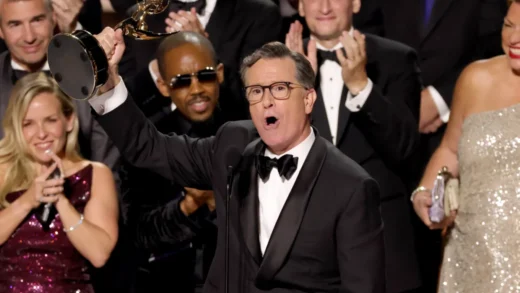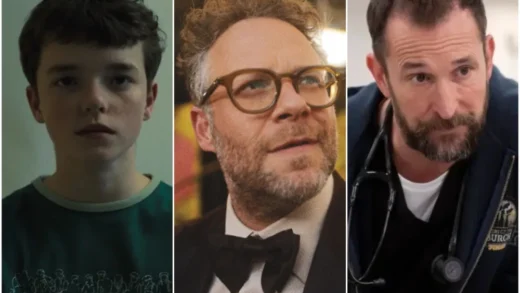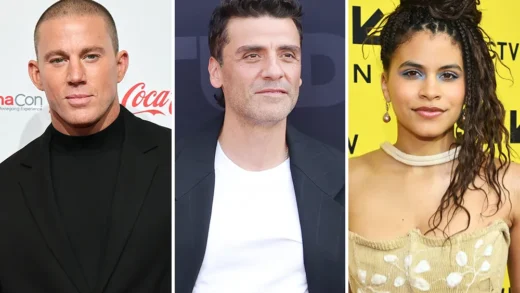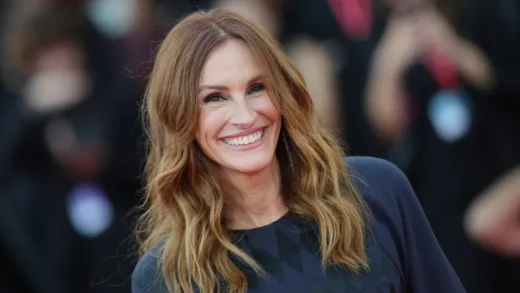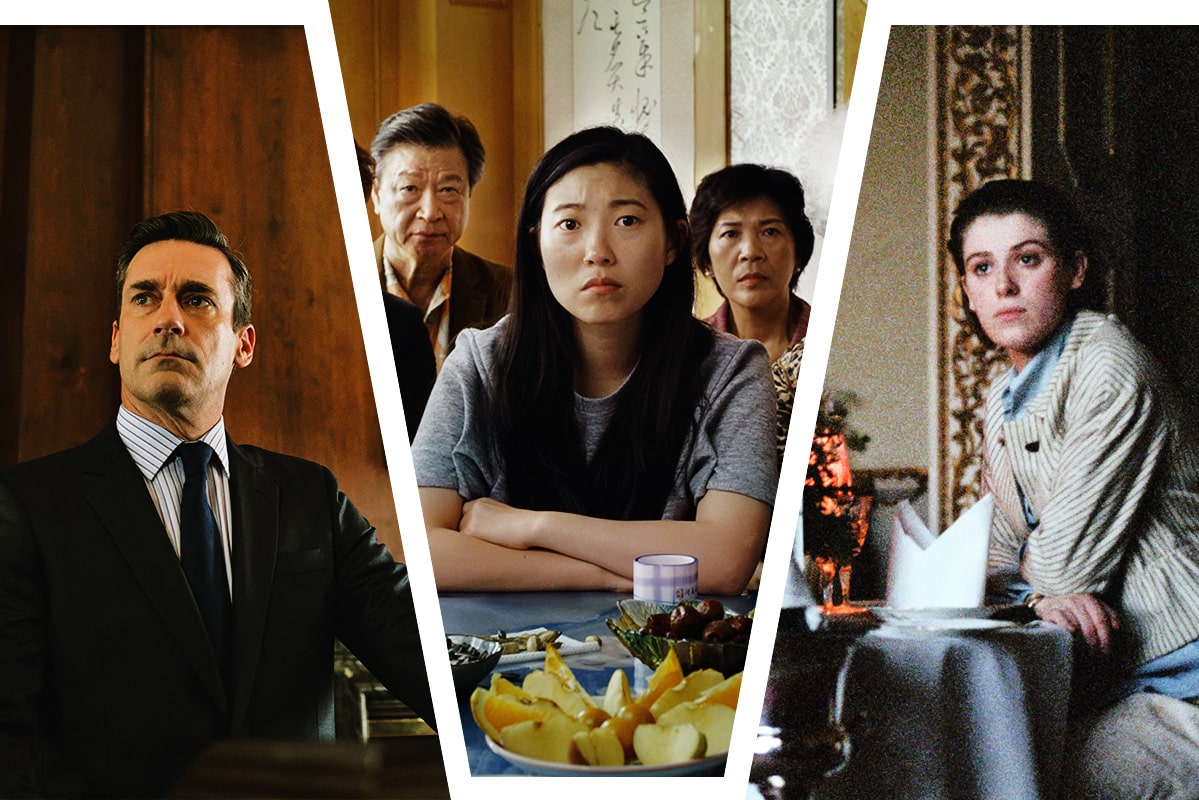Sundance hype is real, and it’s spectacular. Cut off from the outside world and quarantined on the side of a mountain in Utah, critics have a habit of going gaga for films that merit a collective shrug outside Park City. However, now that we’ve been back a few days and the reflected glamor of the Chase Sapphire Lounge has worn off, cooler heads have prevailed. Here are the 15 films from this year’s offerings that we’re convinced are actually good. (With apologies to Luce, Post, Hala, Brittany Runs a Marathon, and Clemency, all of which we did not get around to seeing, but we’ve heard good things about that we totally believe.)
Apollo 11
There are documentaries that show you something you’ve never seen before, and then there are docs that show you something you’ve seen a million times before, in a completely new way. Apollo 11 is one of the latter. With the help of NASA and the National Archives, the filmmakers discovered a trove of pristine 65mm footage shot behind the scenes of the moon landing, as well as thousands of hours of audio from astronauts and NASA employees, and assembled it into a vérité documentary of the highest scale. Apollo 11 doesn’t just capture the grandeur and beauty of the lunar mission, it also returns a sense of immediacy to an event that’s long since been entombed in historical amber. See it on the biggest screen you can.
This Is Not Berlin
Alfonso Cuarón isn’t the only director who can make a semi-autobiographical film about growing up in a bourgeois Mexico City family during a time of social turmoil. But where Cuarón’s Roma is a wide-screen epic about a ’70s childhood, his contemporary Hari Sama’s This Is Not Berlin is a portrait of an ’80s teen exploring the era’s glittering, fluorescent New Wave scene. Sundance is not exactly lacking for coming-of-age tales, but few of them can match Berlin’s invigorating energy. As young Carlos (Xabiani Ponce de León, the festival’s most beautiful newcomer) gets drawn into this world of sex, drugs, and queer performance art, we fall in love with the city’s bright young things as heedlessly as he does. There’s a small issue in that Carlos might not actually be gay, but as they say, pobody’s nerfect.
The Report
As George W. Bush shows off his puppy paintings and pals around with Michelle Obama, The Report arrives not a moment too soon. Scott Z. Burns’s film is a painstaking account of the process by which senate aide Daniel Jones (Adam Driver) investigated the CIA’s Bush-era torture methods, only to see his conclusions suppressed by both the agency and the Obama administration. As angry as Vice while a fraction as glib, The Report is a damning examination of the way institutional power’s foremost aim is to sustain itself.
Official Secrets
The distaff cousin of The Report, Official Secrets takes place a few years earlier, and a few thousand miles away, but it’s hard not to think of them as companion pieces. Keira Knightley plays Katharine Gun, the real-life whistle-blower who revealed the U.S. and U.K. governments’ attempts to blackmail U.N. diplomats into voting for the Iraq War. Gun failed to stop the war, and found herself the subject of a criminal investigation for her trouble. Official Secrets is more of a conventional legal drama than The Report, but it’s carried by a gripping performance by Knightley — who really should get to act in a movie where she eats candy and snuggles up in a cozy blanket one of these days — and what feels like dozens of Britain’s finest character actors. And it’s carried home by a final scene that would be hilarious in its audacity if it didn’t also feel so darkly true.
Raise Hell: The Life & Times of Molly Ivins
Those of us who remember the legendary newspaper columnist Molly Ivins — who for decades exposed the corruption, venality, and stupidity of American politics with generous doses of cutting humor — will be in hog heaven watching Janice Engel’s brisk, touching, and informative jaunt through her career: The film entertainingly chronicles Ivins’s Texas upbringing, her early years in journalism, her conflicts with editors, and — most prominently — her emergence as one of the foremost political analysts of her time. But those who aren’t familiar with Ivins’s work might enjoy this even more. She was the kind of writer we could definitely use right now — a populist voice unafraid to call out the powerful with the contempt and bewilderment that they merited.
Tigerland
Ross Kauffman’s immensely powerful documentary looks at the gradual extinction of tigers around the world, and follows efforts in India and Siberia to help preserve the dwindling tiger populations in those regions. But this is not your ordinary nature doc. It is in many ways a tale of obsession: The men struggling to protect the tigers are consumed by the quest — over the course of the film, one of them is nearly killed by one of the creatures he’s trying to save, and yet continues on his endeavor. There’s an almost mystical quality to their efforts. And there’s an almost mystical quality to the tiger itself: Kauffman hauntingly explores the animal as a cultural symbol across the world. Indeed, the mythical properties associated with it may even have led to increased threats to its existence.
American Factory
In 2009, Steven Bognar and Julia Reichert made an Oscar-nominated documentary short entitled The Last Truck: Closing of a GM Plant, looking at the final days of a car factory in Ohio. Now, they return to the same plant, which has been brought back to life by its new owners, a Chinese automotive glass-manufacturing company. This time, the filmmakers follow the fascinating culture clash between the American and Chinese workers, between the differing styles of management, and the turmoil caused by attempts to unionize the employees at the factory. There are plenty of despairing insights in this film — about class, age, culture, capitalism, you name it — but ultimately its humanity is what shines through. Bognar and Reichert find power in complexity.
Midnight Traveler
In 2015, Afghan director Hassan Fazili was targeted for death by the Taliban after the subject of one of his previous films was assassinated by the extremist group. He and his family fled Afghanistan and spent the next several years moving from nation to nation, camp to camp, in an effort ultimately to seek asylum in Europe. Fazili shot this film chronicling their journey on three mobile phones, turning a technological limitation into an opportunity to create something powerful, immediate, and intimate. The subject is certainly a topical one, and Midnight Traveler provides a ground-level view of the refugee crisis. But Fazili goes beyond merely portraying a humanitarian calamity. He’s made a film about what it means to be a father and husband — and, beyond that, what it means to be a family — while everything around you is being taken away. And he also interrogates the nature of cinema along the way, exploring how the very act of recording changes the nature of his family’s life.
Sweetheart
Kiersey Clemons washes up on a desert island, and quickly realizes that she’s not alone. That’s all you need to know about this tense little survival thriller — though you can learn more here — which offers a clinic in cinematic, mostly wordless storytelling. Using just darkness and sound, director J.D. Dillard keeps us on the edge of our seats, while also providing just enough thematic grace notes to suggest that there’s more to our heroine’s journey than just [REDACTED] chasing her.
Cold Case Hammarskjöld
Danish director Mads Brügger specializes in first-person investigations, and his latest is a riveting doozy. Looking into the mysterious 1961 plane crash that killed then-U.N. Secretary General Dag Hammarskjöld, the director, along with Swedish investigative journalist Göran Björkdahl, attempts to uncover once and for all if there was an international plot to take down the politician. What they discover turns out to be so much more disturbing and complex, involving mad mercenaries, shadowy organizations, and the long history of genocidal racism in Africa. Maybe. Brügger’s highly structured, self-aware style allows him to regularly ask if what he’s uncovering is the truth, or an offshoot of his own desire to find conspiracies everywhere. The film ends on an open-ended note, but don’t be surprised if you start thinking about buying tinfoil in bulk as soon as you leave the theater. If even half of what’s alleged in this film turns out to be true, it’ll be one of the most terrifying revelations of our lifetime.
The Farewell
Awkwafina proved that she was the real deal in this festival favorite, but it was also a major arrival for director Lulu Wang. Wang based her script on her own family’s convoluted plot to keep their grandmother’s terminal cancer diagnosis a secret from her, and while the funny-sad drama that ensues could have easily become a Sundance cliché, Wang’s confidence as a director turned it all into something more mature, complex, and lingering. A24 picked the film up for a TBD release date, and hopefully a relatively wide one.
Late Night
One of the biggest deals of the festival was for Mindy Kaling’s Late Night, a sneakily trenchant workplace comedy directed with breezy panache by Nisha Ganatra. Emma Thompson stars as the host of a late-night talk show who is in danger of losing her job to a younger, edgier, male-er comedian; Kaling plays her new writing room “diversity hire,” and the result is both funnier and more human that The Devil Wears Prada. Amazon Studios bought the film for a reported $13 million, and though the release date is TBD, it feels like the perfect late-summer theatrical release — it somehow pulls off being escapist and brainy at the same time.
(Excerpt) Read more in: Vulture
